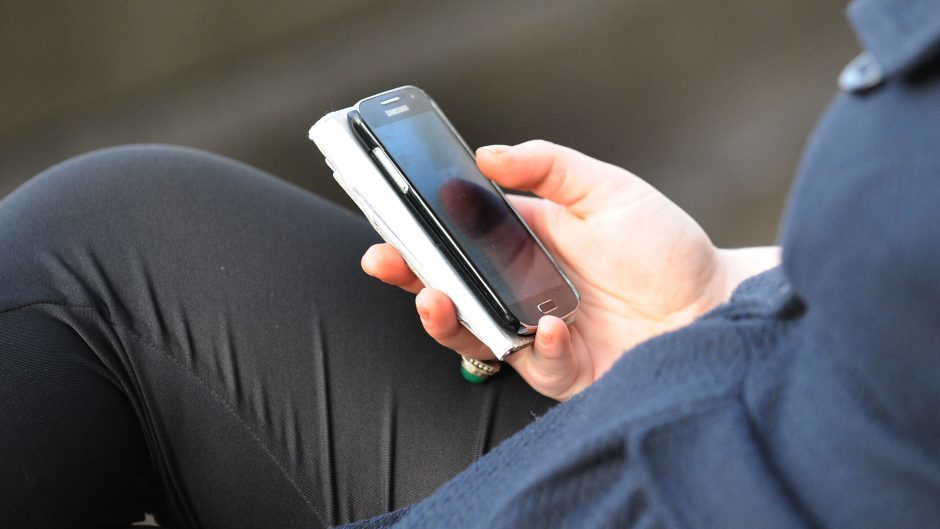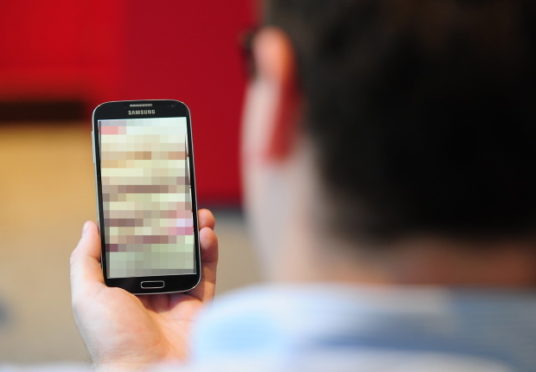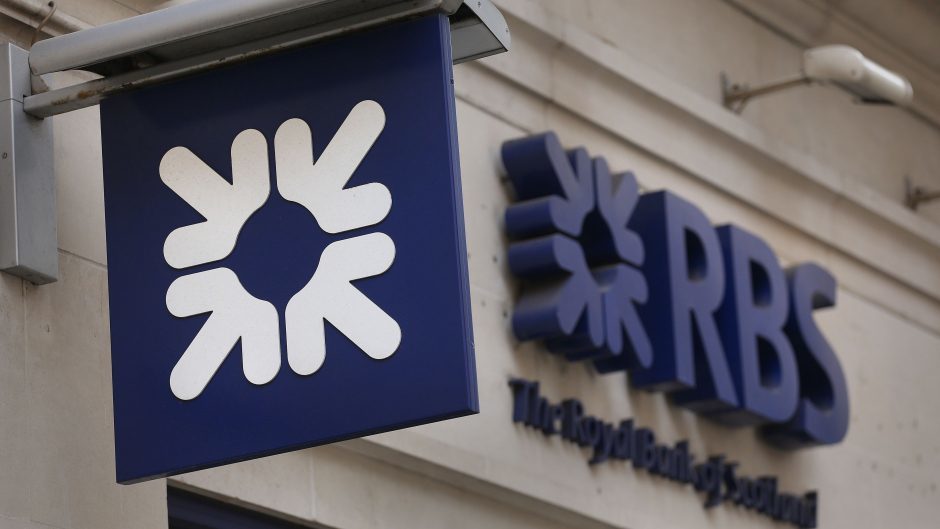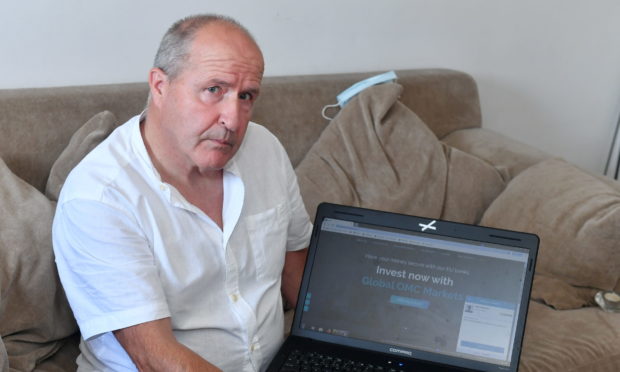A nurse was left in debt after being conned into believing his bank account was at risk.
Brodie Johnston had just started a new job and was low on funds when a man claiming to be from the Royal Bank of Scotland’s fraud team called to say his bank had been compromised.
The con artist persuaded the 27-year-old to reveal a security detail – enough to swipe £360 from his account within the space of a few minutes.
In a desperate bid to get more money from Brodie’s account, the scammers set up a £600 overdraft, though were never able to make use of it.
The experience left Brodie who was low on funds at the time of the fraud, having to borrow money from loved ones to pay bills and he endured an 18-month fight for justice to get his money back.
Our in-depth investigation into fraud in the region has uncovered that there have been 84 reports in the north-east of this kind of con – known as safe account fraud – in the last year, with criminals fleecing victims out of a total of £1,020,699.19.
And statistics suggest the problem is getting worse: There were 64 such incidents in the previous 12-month period – covering August 2018 and July 2019 – though the amount taken was slightly higher, at £1,029.711.64.
Police have now launched a campaign urging people to be on their guard about fraud – and Brodie, who is originally from Ellon and now stays in Old Rayne, has backed them.
He said: “These figures are mad. It shocks me that this kind of fraud is so prevalent in the north-east. People need to be careful.
“It makes you think – I’m a young person that has got a support network. If there was a pensioner that didn’t, are they going to go hungry if this happens to them?”
Describing his experience, which took place in January 2017, Brodie said: “I got a phone call on a Sunday evening from someone claiming to be from Royal Bank of Scotland.
“They said they had noticed an Amazon purchase come out of my account for £600 and wondered if it was myself who made that payment and obviously it wasn’t.
“They said they could tell from the computer of the person who made the purchase that it was from Ipswich in England.”

The fraudsters persuaded Brodie to hand over the customer number for his mobile banking app.
Though he was unaware at the time, that was enough for the criminals to raid his account.
The following day, RBS alerted him to three suspicious cash withdrawals from his account totalling £400.
The scammers managed to get hold of the cash by claiming they had lost the debit card and needed to make emergency ATM withdrawals.
Worried by the genuine alert, Brodie went to the Bridge of Don branch of RBS and what he discovered shocked him.
He said: “Two of my accounts read £0. One of them said 35p. They had drained my accounts.
“I was in debt to my parents and my partner because of this. I was really disappointed with the whole situation and quite angry. It was not a pleasant experience.”
But RBS initially refused to refund Brodie and only did so once the Financial Services Ombudsman ordered it to do so following a formal complaint from Brodie.
He said: “I was relieved. I managed to pay back some of the debt that I still had hanging over my head from the incident.
“I was quite delighted with the result, not just because of the money, but because I just didn’t think it was morally right the bank didn’t give me money back.
“It might have only been £400 but, at the time, that was a lot of money to me. That was money I needed to pay my bills and fuel, so I could manage to get to patients’ houses when working.”
“I wondered if the amount stole was £50,000 the bank would have done the same?”
He added: “For a good while after this happened, I would refuse to give people any details over the phone. It does knock your confidence.
“I also opened other bank accounts to scatter my funds thinking that, if this happened again, I wouldn’t lose all my money.
“I am glad the police are looking at this and trying to make people think twice about how they handle their financial information, so people aren’t left in the situation I was.”
An RBS spokeswoman said could not comment on individual cases.
She added: “Where a customer has suffered loss we review their situation, establish the facts and make a decision on a case by case basis.
“Remember, we’ll never ask for your full PIN and full password by text, email or on the phone.”
The spokeswoman said the RBS website contained a range of information aimed at reducing fraud.
Detective Sergeant John Lumsden, of Police Scotland’s North East Division, said: “These fraudsters could be anywhere in the world and as much as the communities in the north-east of Scotland have lost about £1m in the last year, all over the world that is going to be multiplied by hundreds of millions of pounds.
“They are well-practised, they have got their speech and the terminology they used to sound convincing. They are well versed and this is what they do to make a living. They are very accurate in what they do.”
He added: “There is an embarrassment from victims because they have fallen for this.
“We want people, if they have concerns, to speak to your bank. There are measures out there and there is advice and guidance that can be given.
“Our aim is to try to stop this from happen, to share people’s experience and to heighten awareness and for people to watch out for the signs to prevent falling victims to this type of crime.”
He added: “The banking industry is always researching current crime trends and making sure its own security is up to the highest standard possible, which is making these scams very difficult to achieve.
“As a result, fraudsters try to create a sense of urgency into making you think you have to act fast to protect your savings.
“They use scare tactics. Victims trip up because they are more worried about losing money than concentrating on the conversation they are having. They feel they are having a genuine conversation with their bank.
“A lot of the calls do sound genuine, but that doesn’t mean they are.
“Asking for security questions and sounding official might not necessarily mean they are calling from the bank.
“If you do receive a call like that, hang up and visit your local branch or make contact with your bank through a legitimate number, using a different phone.
“The call may be genuine, but you’re better to challenge it than risk falling victim to this type of crime.
“The bank will never phone you and ask you to move money or to tell you your money is in danger.”





